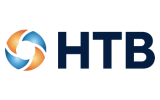Business Savings Accounts
Compare latest business savings accounts in 2025

What are business savings accounts?
A business savings account differs from a current account in that it is not used for day to day transactions and therefore the account provider will generally pay interest for money held in the savings account. A business savings account can run along side a current account and with internet banking moving money from a current to a savings account is now fairly straightforward process.
As with many business deposit accounts the terms offered will depend on how much you are looking to deposit the notice period terms, if any, interest payment terms and with some accounts your business turnover. The best high yield business accounts tend to be operated on an online basis where operating costs are kept to a minimum by providers.
What are the benefits of a business savings account?
Business savings accounts can be set up by a business with different notice periods to benefit from higher rates of interest e.g. an instant access savings account, a 30 day business notice account and a 180 day business savings account all provide could be used. There are many bank and building society providers who will happily pay competitive rates of interest for the privilege of holding business savings. As a general observation the main high street banks who hold most business savings pay interest at the lower end of the spectrum.
For notice accounts up to 180 days interest rates can be considerably higher, so for businesses that can plan their cash requirements ensuring you are maximising interest through using high yield business accounts should be considered. Depending on the business deposit account interest payment ranges from monthly, quarterly, half yearly to yearly.
For business owners concerned about what happens if the bank or building society holding their money fails, there is protection under the Financial Services Compensation Scheme (FSCS) for smaller businesses. As an indicative guide smaller businesses are protected as long as it meets two of the following criteria: 1. Turnover is not more than £6.5 million 2. Balance sheet total is not more than 3.26 million 3. No more than 50 employees.
What types of business saving account are there?
Business Instant Access Savings Accounts
Where money can be accessed without any interest penalty charge. The withdrawals process may differ from provider to provider. Some banks or building societies allow you to transfer funds direct into your current account online, while others require a postal or telephone process. Depending on how quickly you need access to funds this should be considered when you select the account right for your business.
Business Notice Savings Accounts
Range from 7 day notice to 180 day notice and will offer higher rates of interest. Interest penalties will generally apply if money is withdrawn within the notice period.
Business Saving Bonds
Are designed for businesses who can tie up money for a set period typically ranging from 6 months to 5 years. These business fixed rate bonds pay attractive levels of interest but you need to be confident capital can be committed for the duration. Often a high minimum balance will apply for these types of longer term business savings bonds.
Alternative Business Savings Plans
As an alternative to business saving bonds you may wish to consider structured deposit plans which range in term from 3 to 6 years. Structured deposit plans normally have their return linked to the stockmarket and therefore can offer higher potential returns than cash. With these plans returns are not guaranteed and there are usually charges for withdrawing capital early.
6 things to consider when choosing a business savings account
- Minimum business savings deposits – some business savings accounts require a minimum level of funding
- Business Savings Access – Depending on the business savings account access will be through the branch, online telephone or post. Some accounts are only available to businesses based in a local areas or regions. Restrictions may apply depending on business turnover
- Business Savings Interest – some savings account providers will pay interest monthly and others quarterly, half yearly or annually
- Business Savings Withdrawal Penalties – Generally speaking the longer you can lock your surplus business cash away the better the interest rate you can expect to get. If you need access to your money at short notice interest penalties may apply. Some providers will allow a limited number of penalty free withdrawals a year
- Savings Protection for Businesses – The Financial Services Compensation Scheme (FSCS) was mainly set up to protect individuals. However some businesses are covered. As an indicative guide to qualify for the scheme a business must meet two of the following criteria to qualify for the FSCS depositer scheme; (a) turnover no more than £6.5 million (b) Balance sheet not more than £3.26 million (c) Total number of employees no more than 50
- Online Access – A number of business savings providers offer online access and the option of linking your current account to your savings account. This not only makes management easier but also provides an additional security feature
With interest rates at the time of writing at an all-time low the impact in real terms of inflation on your money is not to be underestimated in eroding the buying power of a company’s cash. Use our business savings comparison tables to ensure you get a good savings rate. We also provide selected market leading savings accounts for personal use.


